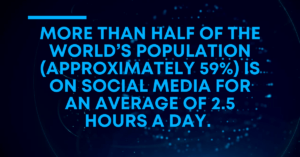The Federal Trade Commission requires influencers to disclose sponsored posts and has for years. But a letter filed by FTC Commissioner Rohit Chopra, citing a recent case involving retailer Lord & Taylor, seems to demonstrate that the guidelines have had little effect.
In the letter, Chopra highlighted a recent Lord & Taylor campaign that paid 50 social media influencers to post about a product on Instagram without requiring them to disclose that the posts were sponsored.
Influencers Who Don’t Disclose Could Face Financial Penalties
Citing the Lord & Taylor case, Chopra is calling for tougher penalties on companies who mask advertising on social media platforms. In his statement, Chopra said the FTC needed to seek “tougher remedies for companies that are illegally astroturfing or disguising their advertising as an authentic endorsement or review.”
When Should Influencers Use Disclosures
Disclosing simply means that if you endorse a product, your message or post must make it clear that you have a relationship – a material connection – with the brand. That “material connection” includes personal, family, employment, or financial relationships.
Specific instances when influencers should disclose include:
- When you have any financial, employment, personal, or family relationship with a brand you’re posting for or on behalf of.
- If you received or will receive anything of value for mentioning a product.
- If a brand gives you free or discounted products or other perks and you mention one of its products, even if you weren’t asked to mention the product or service.
- Tags, likes, and pins, which the FTC considers ways of demonstrating your endorsement of a brand.
And, keep in mind, if you’re posting from abroad, U.S. law applies if it’s reasonably foreseeable that the post will affect U.S. consumers. Foreign laws might also apply.

When Should Influencers Not Use Disclosures
There’s no need to disclose if you don’t have an arrangement with the brand, and when you purchased a product or service on your own. According to the FTC, “If you have no brand relationship and are just telling people about a product you bought and happen to like, you don’t need to declare that you don’t have a brand relationship.”
How Should Influencers Disclose Partnerships
In general, disclosures should be placed within the endorsement message itself and should be in a location where it’s hard to miss. This means no hiding it at the bottom of long descriptions or mixed in with other hashtags. Disclosures made on a profile or ABOUT ME page and at the end of long blog posts are likely to be missed.
Language should be clear and easy to understand. That said, disclosing brand relationships can vary from platform to platform.
Properly disclosing partnerships in short-form videos on Instagram and Instagram Stories means including disclosures in the first line of the caption.
On Snapchat, influencers should superimpose disclosures on images and video, making sure viewers have adequate time to read it.
For longer-form videos on YouTube, Facebook, Twitter, and TikTok, disclosures must be both visible and audible in the video itself, not just in the description.
On live streams such as Facebook Live or Twitch, the FTC requires disclosures to be repeated, both visibly and audibly, periodically throughout the duration of the live event.
For Facebook posts, disclosure statements must be visible in the post, caption, or description. On Twitter, the disclosure statement must appear within the first 125 characters of the caption. And for all platforms, the FTC suggests the use of hashtags such as #ad, #sponsored, or #paid followed by a brand in a caption to disclose a partnership.
On blogs, The FTC advises that the disclosure has to appear before the product or service link and above the fold of the product being endorsed. In other words, the reader shouldn’t have to scroll past an affiliate link to know that it’s an endorsed product.

Other Important FTC Rules
In addition to rules that are specific to certain social media sites, the FTC has general rules that apply across the board. Endorsements should always be in the same language as the endorsement itself. You can’t lie about liking a product you either really don’t like or have never tried, and you’re not allowed to make false claims about a product or service, including, for example, citing the existence of scientific proof that an advertiser doesn’t have.
The bottom line is if you work with brands and you recommend or endorse products, you need to comply with FTC rules and regulations. So, if there’s a financial, employment, personal, or family relationship with a brand you’re posting for or on behalf of, your followers should know. And the way to let them know is by disclosing.
Nancy Rothman
Latest posts by Nancy Rothman (see all)
- How Travel Brands Can Use Influencer Marketing to Stay Afloat as the Pandemic Continues - February 22, 2022
- Influencer Marketing Trends to Watch (And Prepare For) in 2022 - December 31, 2021
- A Guide: How to Recruit the Right Influencers for Your Brand - December 30, 2021







